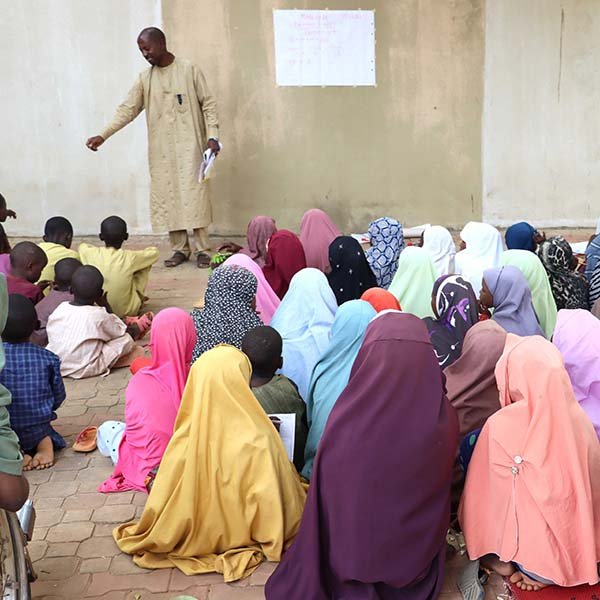Continuous learning is a central theme in Islam, emphasizing the pursuit of knowledge from cradle to grave. The Quran and the Hadith repeatedly highlight the value of knowledge and the importance of seeking it diligently. This article explores the significance of continuous learning in Islam, supported by Quranic and Hadith evidences, and outlines practical steps to foster a culture of lifelong learning.
The Islamic Perspective on Learning
Islam encourages the pursuit of knowledge and views it as a means to understand the world, fulfill religious duties, and contribute to the betterment of society.
Quranic Evidence:
“اقْرَأْ بِاسْمِ رَبِّكَ الَّذِي خَلَقَ”
“Read in the name of your Lord who created.”
(Quran 96:1)
Hadith Evidence:
“قَالَ رَسُولُ اللَّهِ ﷺ: طَلَبُ الْعِلْمِ فَرِيضَةٌ عَلَى كُلِّ مُسْلِمٍ”
“The Messenger of Allah (ﷺ) said: ‘Seeking knowledge is an obligation upon every Muslim.'”
Principles of Continuous Learning in Islam
- Seeking Knowledge: Muslims are encouraged to seek knowledge throughout their lives, regardless of age or status.
- Reflecting and Applying: Acquiring knowledge should lead to reflection and practical application in daily life.
- Teaching and Sharing: Sharing knowledge with others is a highly regarded act in Islam.
- Holistic Approach: Islamic learning encompasses both religious and worldly knowledge, promoting a balanced approach to education.
Quranic Evidence:
“وَقُلْ رَبِّ زِدْنِي عِلْمًا”
_”And say, ‘My Lord, increase me in knowledge.'”
(Quran 20:114)
Benefits of Continuous Learning
- Spiritual Growth: Learning about religious principles enhances one’s faith and understanding of Islamic teachings.
- Personal Development: Continuous learning fosters personal growth, creativity, and critical thinking.
- Community Improvement: Educated individuals contribute positively to their communities and promote societal progress.
- Adaptability: Lifelong learning equips individuals to adapt to changing circumstances and challenges.
Hadith Evidence:
“قَالَ رَسُولُ اللَّهِ ﷺ: مَنْ سَلَكَ طَرِيقًا يَلْتَمِسُ فِيهِ عِلْمًا، سَهَّلَ اللَّهُ لَهُ طَرِيقًا إِلَى الْجَنَّةِ”
“The Messenger of Allah (ﷺ) said: ‘Whoever follows a path in the pursuit of knowledge, Allah will make a path to Paradise easy for him.'”
Practical Steps to Foster Continuous Learning
- Dedicate Time for Study: Set aside regular time for reading and studying various subjects, both religious and secular.
- Attend Classes and Workshops: Participate in educational programs, lectures, and workshops to gain new insights and skills.
- Engage in Discussions: Join study groups and engage in discussions to deepen understanding and share perspectives.
- Use Technology: Utilize online resources, educational apps, and e-learning platforms to access knowledge conveniently.
- Reflect and Implement: Apply the knowledge gained in daily life and reflect on its impact and relevance.
Quranic Evidence:
“يَرْفَعِ اللَّهُ الَّذِينَ آمَنُوا مِنكُمْ وَالَّذِينَ أُوتُوا الْعِلْمَ دَرَجَاتٍ ۚ وَاللَّهُ بِمَا تَعْمَلُونَ خَبِيرٌ”
“Allah will raise those who have believed among you and those who were given knowledge, by degrees. And Allah is Acquainted with what you do.”
(Quran 58:11)
Conclusion
Continuous learning is a vital aspect of Islamic teachings, encouraging Muslims to seek knowledge and apply it throughout their lives. By adhering to the principles outlined in the Quran and Hadith, individuals can achieve personal growth, spiritual fulfillment, and contribute positively to their communities. Embracing a culture of lifelong learning aligns with the broader objectives of Islam, promoting a well-rounded and progressive society.
Quranic and Hadith References:
- Quran: Surah Al-Alaq (96:1), Surah Taha (20:114), Surah Al-Mujadila (58:11)
- Hadith: Sahih Bukhari, Sahih Muslim








